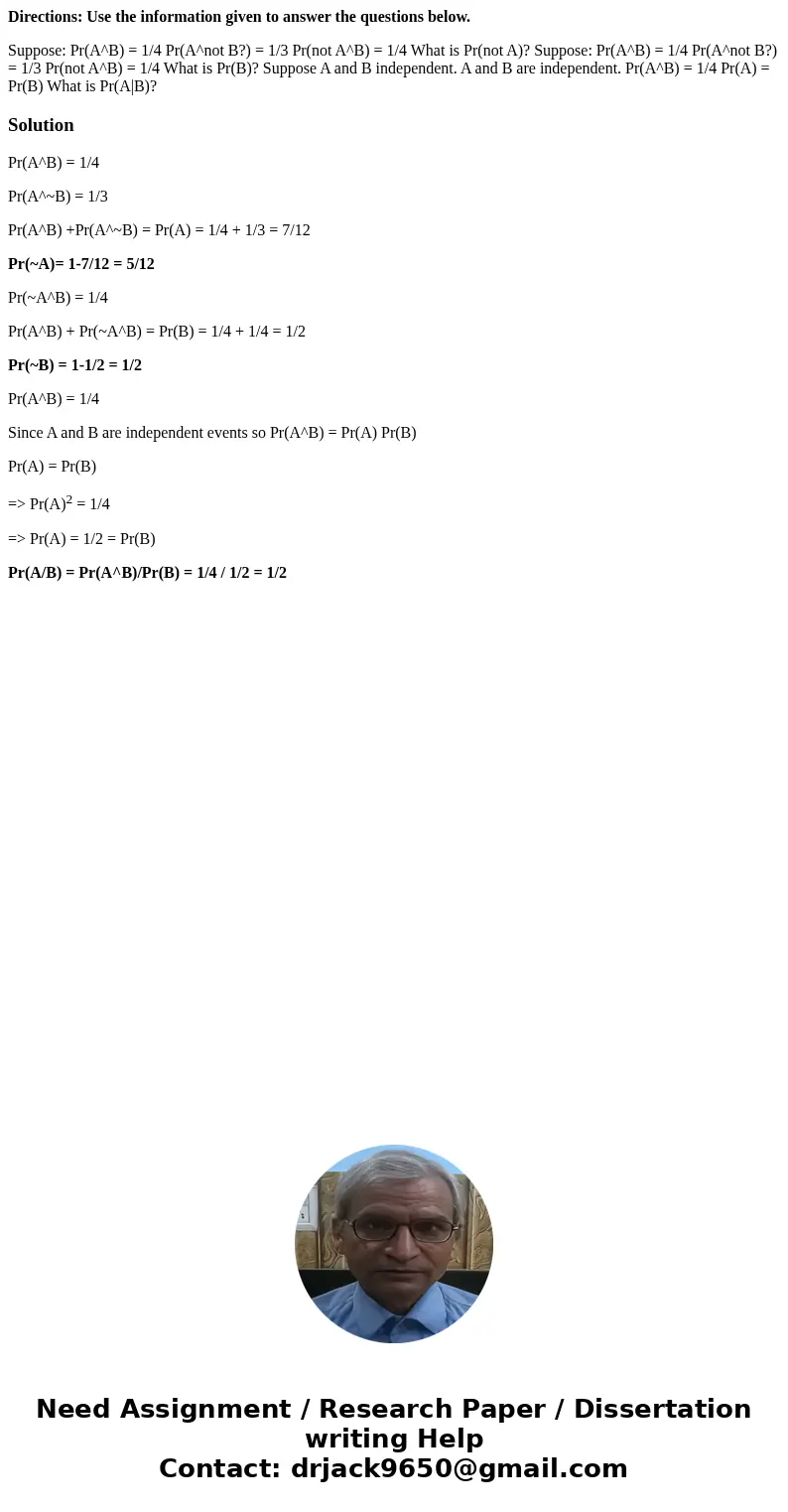Directions Use the information given to answer the questions
Directions: Use the information given to answer the questions below.
Suppose: Pr(A^B) = 1/4 Pr(A^not B?) = 1/3 Pr(not A^B) = 1/4 What is Pr(not A)? Suppose: Pr(A^B) = 1/4 Pr(A^not B?) = 1/3 Pr(not A^B) = 1/4 What is Pr(B)? Suppose A and B independent. A and B are independent. Pr(A^B) = 1/4 Pr(A) = Pr(B) What is Pr(A|B)?Solution
Pr(A^B) = 1/4
Pr(A^~B) = 1/3
Pr(A^B) +Pr(A^~B) = Pr(A) = 1/4 + 1/3 = 7/12
Pr(~A)= 1-7/12 = 5/12
Pr(~A^B) = 1/4
Pr(A^B) + Pr(~A^B) = Pr(B) = 1/4 + 1/4 = 1/2
Pr(~B) = 1-1/2 = 1/2
Pr(A^B) = 1/4
Since A and B are independent events so Pr(A^B) = Pr(A) Pr(B)
Pr(A) = Pr(B)
=> Pr(A)2 = 1/4
=> Pr(A) = 1/2 = Pr(B)
Pr(A/B) = Pr(A^B)/Pr(B) = 1/4 / 1/2 = 1/2

 Homework Sourse
Homework Sourse